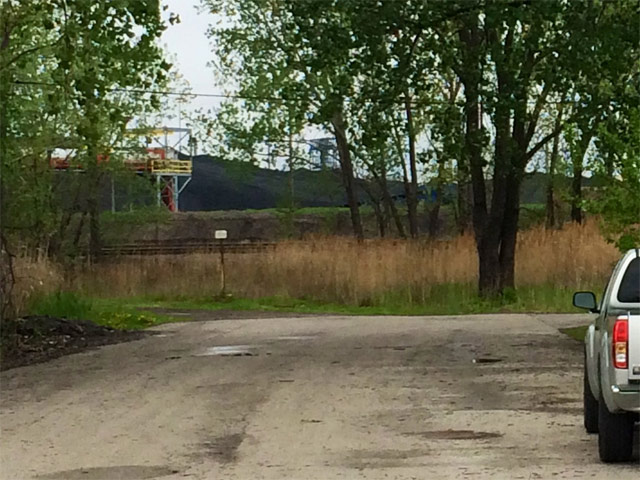A Big Week For Petcoke Opponents
By JoshMogerman in News on Feb 22, 2015 9:30PM
Last week was a good one for Southeast Side residents fighting a very public battle against facilities mounding oil refinery waste at sites along the Calumet River.
It started with the City rejecting a request from the operator of two controversial facilities to delay covering huge piles of petcoke near homes and parks in the East End and South Deering neighborhoods. Last year the City set a two-year deadline to enclose piles of the black, dusty material. KCBX, the Koch Brothers' company at the heart of Chicago’s ongoing drama, requested an extra 14 months to build their structure but got no love from the City.
That news was followed by a surprising announcement from BP. Their nearby Whiting, Indiana refinery produces 6,000 tons of petcoke every day, most of which is currently hauled by train or barge to Chicago. That may stop this summer, with a commitment from the oil giant to stop storing petcoke in Illinois.
Later in the week KCBX announced they would close their 100th Street site and remove piles from their 108th Street location while converting it to a transfer facility. That change in function has Southeast Siders holding off on their celebrations until there is more clarity on the company’s plans. Peggy Salazar with the Southeast Environmental Task Force worries about the pollution and quality of life impacts on the area associated with the “assault from the trains, barges, ships and trucks delivering the dusty mess.”
In Northwest Indiana, the announcement triggered concern that the piles might pop up closer to their source at the refinery. Rumors of potential petcoke sites in Gary, Hammond and other Indiana towns have persisted almost as long as Southeast Siders have been pushing to get the material out of their communities. This week’s announcements will undoubtedly rekindle those concerns.
